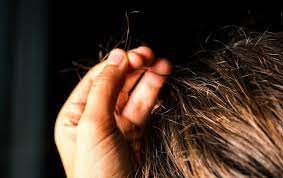Definition
Mania is a psychological disorder in the form of excessive and unreasonable euphoria or joy, very excited mood, hyperactivity, with or without symptoms of psychosis. Symptoms of psychosis include hallucinations and delusions. Hallucinations are the perception of seeing, hearing, touching, tasting, or smelling something that is not there. Meanwhile, delusions are false beliefs that do not match reality but are difficult to break.
The happy and excited mood in manic disorders differs from the usual excitement that is felt, generally, their energy or activity can appear to increase to the extreme. Other people must also recognize these symptoms as an unusual condition for the sufferer. Mania is also different from conditions that arise as a result of drug use.
The manic disorder can be a dangerous condition for several reasons, such as not sleeping or not eating while in a manic state. People with mania may also engage in risky behavior and harm themselves or others.
Manic episodes are a common symptom of bipolar disorder. Manic episodes are periods when bipolar sufferers experience symptoms of mania. In some cases, sufferers can be treated in hospital.
Causes
The exact cause of manic disorders is not known. However, there is strong evidence that the cause combines genetic, social, and psychological factors.
Family history of manic disorders
Mania's development is thought to be linked to family genetics. Relatives of individuals with manic disorders have a greater chance of experiencing manic episodes themselves compared to those without a family history of mania. However, having a family member who suffers from a manic disorder does not mean that person will experience it, too.
Drastic changes in the environment
Exposure to several triggers can trigger mania in people with bipolar disorder. Triggers for mania include changes in the environment that are stressful. Shocking life events, such as the death of a loved one, can contribute to the onset of mania. Financial or romantic problems can also trigger manic disorders.
Have a mental illness or other medical condition
Some people are more susceptible to manic disorders because they have an underlying medical condition or psychiatric illness, such as bipolar disorder. Apart from bipolar disorder, manic disorders can also be a symptom of the mental disorder postpartum psychosis, which occurs in mothers after giving birth, schizoaffective disorder, or cyclothymia. Medical conditions such as hypothyroidism or a lack of thyroid hormone in the body, although rare, can also cause mania.
Brain scan results show that manic disorder patients have slightly different brain structures or activity. However, doctors do not use brain scans to diagnose manic disorder or bipolar disorder.
Risk factor
Some risk factors that can increase a person's risk of experiencing manic disorders are:
- There is a history of manic disorders in the family
- Has bipolar disorder
- Stress from the environment, such as the loss of a loved one, financial problems, romance, and other medical illnesses
Symptoms
Patients with manic disorders exhibit excessive excitement and euphoria. They are also hyperactive and may experience hallucinations or delusions. Some patients feel restless and very anxious. People with mania feel as if they have enormous energy and everything in the world is moving faster. People with mania usually have fast thoughts and ways of speaking.
Manic disorders can make patients feel like they don't need to sleep and lead to poor performance. People with mania are easily irritated or distracted, engage in risky behavior, and spend a lot of money. They also have aggressive behavior. A milder form of mania is called hypomania. Hypomania lasts shorter than mania.
Diagnosis
Doctors or psychiatrists (mental health specialists) diagnose manic disorders through psychiatric interviews with patients. Direct observation may also indicate that the patient is experiencing a manic episode.
The Diagnostic and Statistical Manual of Mental Disorders from the American Psychiatric Association outlines the criteria for a manic episode, namely that the episode must occur for a week or less than a week if the patient is hospitalized.
In addition to disturbed mood, patients should experience at least three of the following symptoms:
- Focus is easily distracted
- Behaving riskily or impulsively, including excessive spending or risky sexual behavior
- Has a quick mind, changes quickly, and is difficult to follow
- Reduced need for sleep
- Having obsessive thoughts
In some cases, hallucinations or delusions are part of a manic episode. For example, a person may believe that he or she is famous or has superpowers. For a person's condition to be considered a manic episode, the symptoms must not be caused by outside influences, such as drug or alcohol abuse. Usually, the doctor will carry out laboratory or supporting examinations such as a complete blood test, urine examination, and even a brain CT scan. This examination is carried out based on indications or to exclude the possibility of other conditions that may be the underlying cause of manic disorders.
Manic episodes disrupt a person's life and negatively impact relationships, work, or school. Many manic episodes require hospitalization to stabilize the patient's mood and prevent self-harm.
Management
Hospitalization is necessary if the manic episode is severe or accompanied by symptoms of psychosis. Hospitalization can prevent patients from harming themselves and others.
Medications
Medications are the first line of treatment for mania. These medications are prescribed to relieve symptoms of psychosis that patients may experience, balance mood, and reduce the risk of self-harm. The medicines given must be prescribed and according to the psychiatrist's instructions.
Psychotherapy
Psychotherapy sessions can help patients identify their mania triggers so they can be prepared if symptoms arise, reduce the effects of a manic episode, or even prevent it. Psychotherapy also helps patients to manage stress. Family or group therapy may also help.
Complications
The consequences of a manic episode can be damaging for both the person afflicted and those in their circle. Individuals in the throes of mania may engage in inappropriate behavior that can lead to reputational damage and career setbacks. More serious complications that can occur include physical harm to yourself or others.
Prevention
Medication, psychotherapy, and group therapy can help prevent manic episodes. Therapy can help patients recognize manic triggers so they can prevent or immediately seek help if they experience a manic episode.
Although manic episodes cannot always be prevented, the patient or the patient's family can make a plan to manage the symptoms better and prevent worsening. Some preventative steps include:
- Avoid activities and environments that can trigger symptoms, such as noisy, crowded, or bright places
- Choose activities and environments that are calm and relaxing
- Be disciplined in the routine you have created, such as going to bed on time, even if you don't feel tired. Also, adhere to meal times, take medicine and exercise
- Limit the number of social contacts to avoid being overstimulated and excited
- Put off making big life decisions and considerable purchases of goods
- Avoid people and situations that might tempt you to make bad or risky choices, such as using drugs or drinking alcohol
- Consider asking someone to help you manage your finances during a manic episode
- If you ever think about harming yourself, tell family or friends and contact a health care provider
When to see a doctor?
If you have symptoms of manic disorder, as mentioned above, consult a doctor or psychiatrist because mania cannot improve on its own.
Seek emergency medical help immediately if you or your relatives are having thoughts or are already acting to harm yourself or others. You can call the local emergency number or visit the nearest hospital emergency unit.
- dr Hanifa Rahma
Nall R. (2019). Retrieved 1 February 2022, from https://www.healthline.com/health/mania#Causes
Mania. (2021). Retrieved 1 February 2022, from https://my.clevelandclinic.org/health/diseases/21603-mania
Bipolar disorder. (2021). Retrieved 1 February 2022, from https://www.mayoclinic.org/diseases-conditions/bipolar-disorder/symptoms-causes/syc-20355955
What is a manic episode?. (2020). Retrieved 1 February 2022, from https://www.verywellmind.com/how-to-recognize-a-manic-or-hypomanic-episode-380316
Dailey MW, Saadabadi A. (2020). Mania. Retrieved 1 February 2022, from https://www.ncbi.nlm.nih.gov/books/NBK493168/











